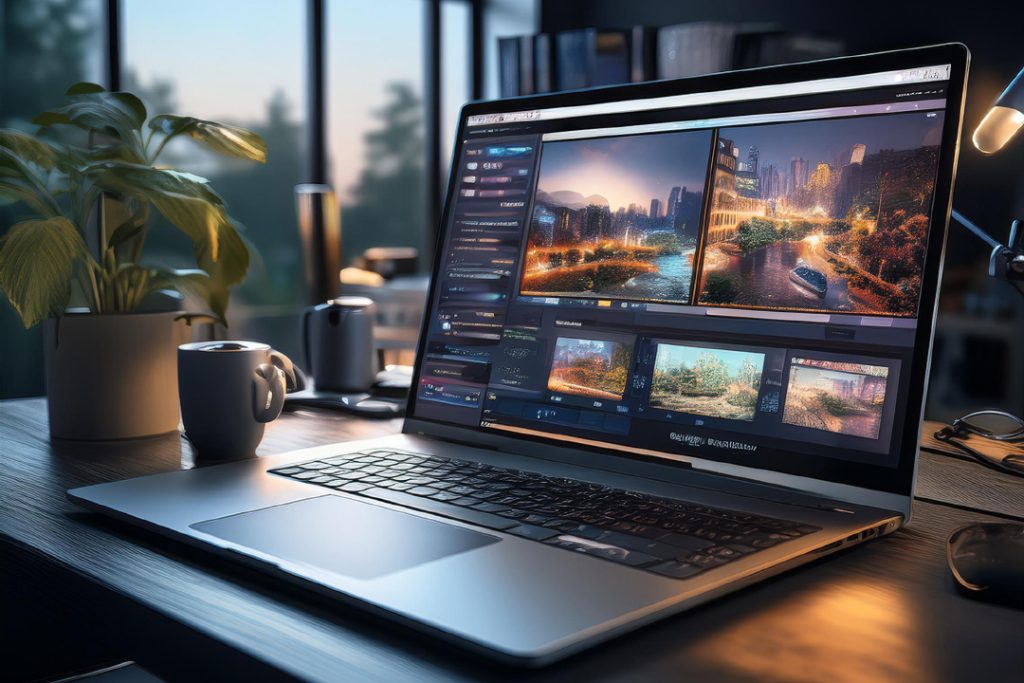Understanding the Digital Nomad Visa
What is a Digital Nomad Visa?
A Digital Nomad Visa lets remote workers live in a foreign country while working for an employer or running a business that’s based elsewhere. It’s perfect for folks who earn their keep online and don’t need to be tied to one spot. The main idea is to give legal residency and work permissions to those who want to live abroad but keep their remote job or freelance gigs.
Why Digital Nomad Visas are Becoming Popular
These visas are catching on for a bunch of reasons. They offer a legal way for remote workers to live and work abroad without breaking immigration rules. Many countries see the economic perks of attracting digital nomads, like more spending in local shops and a mix of cultures. Plus, these visas let remote workers soak up new cultures, boost their quality of life, and find a better work-life balance.
Here’s why Digital Nomad Visas are on the rise:
- Flexibility: Pick your dream spot based on lifestyle, weather, and cost of living.
- Economic Boost: Host countries get a lift from skilled pros spending money locally.
- Legal Peace of Mind: These visas offer legal residency and work rights, cutting down on visa headaches.
- Better Living: Enjoy diverse cultures, lower living costs, and a sweet work-life balance.
If you’re thinking about jumping into the digital nomad life, it’s key to know the digital nomad visa requirements. Also, check out how to make money as a digital nomad and find the best destinations for digital nomads to make smart choices.
What You Need to Get a Digital Nomad Visa
Dreaming of working from a beach in Bali or a café in Lisbon? To make that happen, you’ll need a digital nomad visa. Here’s the lowdown on what you need to get one.
Prove You’re a Remote Worker or Freelancer
First things first, you gotta show you’re legit. Whether you’re working for a company or freelancing, you’ll need to back it up with some paperwork. Here’s what you might need:
- Employment contracts
- Letters from your boss
- Client contracts if you’re freelancing
- Invoices and payment receipts
These docs show you have a steady income that you can earn from anywhere. Need more tips on making money while globe-trotting? Check out our guide on how to make money as a digital nomad.
Show You Make Enough Dough
Different countries have different income requirements to make sure you won’t be broke while living there. Here’s a quick look at what some popular spots ask for:
| Country | Minimum Monthly Income (USD) |
|---|---|
| Estonia | $3,500 |
| Croatia | $2,850 |
| Portugal | $1,070 |
| Mexico | $2,000 |
You’ll usually need to show bank statements or tax returns to prove you meet these numbers. For a full list of places and their requirements, check out our article on best destinations for digital nomads.
Get Health Insurance
No one wants to get sick abroad without insurance. Most countries require you to have health insurance that covers you while you’re there. You’ll need to show:
- Proof of health insurance
- Details of what your policy covers
- Letters from your insurance company
Having the right health insurance makes your move smoother and keeps you covered. For more on managing your money while traveling, see our article on digital nomad income streams.
Wrap-Up
Getting a digital nomad visa isn’t rocket science, but you do need to tick a few boxes. Make sure you have proof of remote work, meet the income requirements, and get health insurance. For those looking to stretch their dollars, check out our guide on affordable digital nomad destinations.
Ready to pack your bags? Let’s get you that visa!
Country-Specific Requirements
Figuring out the ins and outs of getting a digital nomad visa can be a bit of a maze. Different countries have their own rules, so let’s break down some popular spots, what you need to get in, and how long you can stay.
Hotspots and What You Need to Get There
Every country has its own checklist for digital nomad visas. Here’s a quick look at some favorites and what they ask for:
| Country | What You Need |
|---|---|
| Estonia | Proof you work remotely, make at least €3,504 a month |
| Barbados | Proof you work remotely, make at least $50,000 a year |
| Portugal | Proof you work remotely, make at least €600 a month |
| Croatia | Proof you work remotely, have a place to stay, make at least €2,200 a month |
Want more info on where to set up your laptop? Check out our guide on best destinations for digital nomads.
Paperwork You’ll Need
Getting a digital nomad visa means gathering some key documents. While each country has its own list, here’s what you’ll usually need:
- Passport valid for at least six months
- Proof you work remotely or freelance
- Recent bank statements to show you’re financially stable
- Health insurance
- Proof of where you’ll stay (like a lease or hotel booking)
- Filled-out visa application form
Make sure you have all your ducks in a row to avoid any hiccups. For more tips on getting your application ready, check out our section on how to make money as a digital nomad.
How Long You Can Stay and Renewing Your Visa
How long you can hang out in a country with a digital nomad visa and whether you can renew it varies. Here’s a snapshot:
| Country | How Long You Can Stay | Renewal Options |
|---|---|---|
| Estonia | Up to 1 year | Can renew for another year |
| Barbados | 1 year | Can reapply for another year |
| Portugal | Up to 1 year | Can renew for up to 5 years |
| Croatia | Up to 1 year | Can renew for another 6 months |
Knowing these details helps you plan your adventure and manage your time. For more on budget-friendly spots, check out our article on affordable digital nomad destinations.
By getting familiar with what each country needs, you can get ready for your digital nomad journey. Double-check the requirements and gather all the necessary paperwork to make sure your application goes smoothly.
Money Matters
If you’re dreaming of becoming a digital nomad, understanding the financial side of things is a must. This section breaks down the costs, taxes, and money management tips you’ll need to keep your adventure on track.
Visa Costs and Wait Times
Getting a digital nomad visa isn’t free, and the costs and wait times can vary a lot depending on where you’re headed. Here’s a quick look at some popular spots:
| Country | Application Fee (USD) | Processing Time (Weeks) |
|---|---|---|
| Estonia | $100 | 4 – 6 |
| Barbados | $2,000 | 3 – 4 |
| Bermuda | $263 | 2 – 3 |
| Croatia | $90 | 4 – 6 |
Make sure to budget for these fees and plan ahead. For more details on what each country requires, check out our section on popular destinations and their unique requirements.
Taxes: The Not-So-Fun Part
Taxes can be a headache, especially when you’re hopping from one country to another. Your tax obligations will depend on where you live, where you’re from, and how long you stay in each place. Some countries have agreements to prevent you from being taxed twice, but others might want a piece of your income.
To avoid any nasty surprises, it’s smart to talk to a tax advisor who knows the ins and outs of expat taxes. For more on keeping your income streams legit, read our article on digital nomad income streams.
Keeping Your Finances in Check
Managing your money well is key to enjoying your digital nomad life. Here are some tips to help you stay on top of your finances while you’re on the move:
- Bank Accounts: Open a local bank account to dodge those pesky foreign transaction fees and make accessing your cash easier.
- Currency Exchange: Use online services that offer good exchange rates to save on currency conversion.
- Budgeting: Keep a budget to track your spending and make sure you’re not blowing through your savings. Include costs like rent, food, transport, and fun stuff.
- Emergency Fund: Always have a stash of cash for emergencies, whether it’s a medical issue or a sudden need to travel.
| Expense Category | Monthly Cost (USD) |
|---|---|
| Housing | $500 – $1,500 |
| Food | $200 – $600 |
| Transportation | $50 – $200 |
| Leisure | $100 – $300 |
For tips on living cheaply, check out our article on affordable digital nomad destinations.
By keeping these money matters in mind, you’ll be better prepared to make your digital nomad dreams a reality.
Getting Your Digital Nomad Visa: A Quick Guide
Must-Have Documents
Applying for a digital nomad visa? Here’s what you need to get your ducks in a row:
- Proof of Remote Work: A letter from your boss or freelance contracts.
- Income Proof: Bank statements or pay stubs showing you make enough money.
- Health Insurance: Proof that you’re covered in the country you’re heading to.
- Valid Passport: Make sure it’s good for the length of your stay.
- Criminal Background Check: A recent one from your home country.
| Document | Why You Need It |
|---|---|
| Proof of Employment | Shows you work remotely |
| Income Proof | Proves you can support yourself |
| Health Insurance | Confirms you’re covered |
| Valid Passport | Lets you travel |
| Background Check | Security reasons |
Tips for a Smooth Ride
Want to make the process easier? Check out these tips:
- Know the Rules: Every country’s different. Make sure you know what’s needed.
- Stay Organized: Keep all your papers in one place, both on your computer and in a folder.
- Double-Check Everything: Make sure all your info is correct and current.
- Ask for Help: If you’re stuck, talk to an immigration consultant or lawyer.
- Start Early: Don’t wait until the last minute to get your stuff together.
Common Mistakes to Dodge
Steer clear of these common goofs:
- Incomplete Forms: Make sure you fill out everything and attach all required documents.
- Missing Deadlines: Keep an eye on submission dates and processing times.
- Weak Financial Proof: Ensure your income docs clearly show you meet the minimum requirements.
- Lacking Health Insurance: Confirm your insurance covers everything you need in the host country.
- Forgetting Renewals: Know the renewal process and timelines.
For more tips on living the digital nomad life, check out our articles on how to make money as a digital nomad and best destinations for digital nomads.
Living as a Digital Nomad
Adjusting to a New Country and Culture
Living as a digital nomad means packing up and moving often, diving into new places, and figuring out how things work there. Adjusting to a new country involves getting the hang of local customs, language, and social norms. Embracing the local vibe can make the whole experience way more enjoyable and the transition smoother.
- Learn Basic Phrases: Knowing a few key phrases in the local language can be a lifesaver.
- Cultural Sensitivity: Be aware of and respect local customs and traditions.
- Local Cuisine: Trying local food can be a delicious way to dive into the culture.
For more tips on where to go, check out our article on best destinations for digital nomads.
Finding Reliable Internet and Workspaces
Reliable internet is a must for digital nomads. Finding good workspaces can make or break your productivity.
| What to Look For | Details |
|---|---|
| Internet Speed | Make sure the place has high-speed internet. |
| Co-working Spaces | Look for co-working spaces that offer a good work environment. |
| Cafes with Wi-Fi | Many cafes offer free Wi-Fi; just make sure it’s stable. |
- Local SIM Cards: Grab a local SIM card for mobile data.
- Wi-Fi Hotspots: Use portable Wi-Fi devices for consistent internet access.
Check out our guide on how to make money as a digital nomad for more tips on managing work remotely.
Building a Community and Network
Building a community is key for digital nomads. It helps beat loneliness and creates a support system.
- Attend Local Events: Join local events and meetups.
- Join Online Communities: Social media groups can connect you with other digital nomads.
- Co-working Spaces: These places often have networking events and social gatherings.
Connecting with others can also lead to discovering new digital nomad income streams and opportunities.
These aspects of living as a digital nomad, from adjusting to new cultures to finding reliable workspaces and building a community, are essential for a successful and fulfilling experience. For those looking for budget-friendly options, read our article on affordable digital nomad destinations.
Here some recommended links selected for you: The Best Books of the Month, Todays best Deals at Amazon, Best Sellers in Cell Phones & Accessories and last but not least the easy and great way to send a gift for the holidays: Amazon.com eGift Card (Instant Email or Text Delivery).



